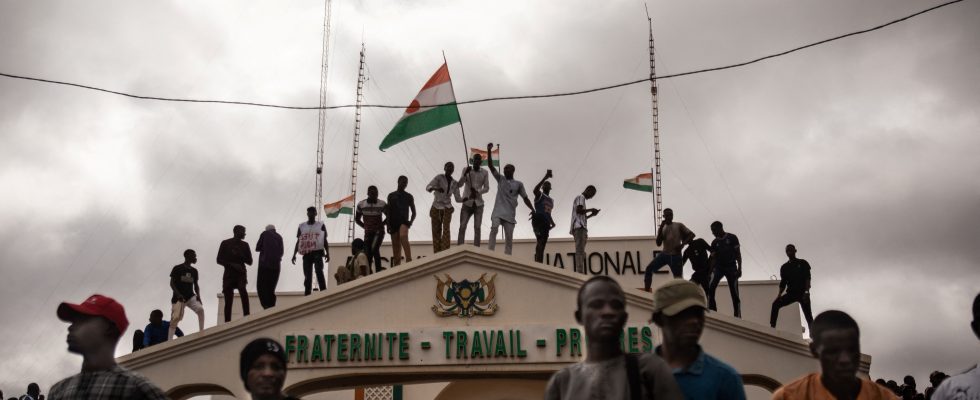An expert in security policies in West Africa, member of the Atlantic Council, a think tank specializing in international relations, and program director at 14 North Strategies, a consulting firm specializing in Africa, Michael Shurkin explains to us the importance of the relationship between the United States and Niger. And its future, very compromised.
L’Express: How is Niger a “special partner” for the United States?
Michael Shurkin: For three reasons. Firstly because President Mohamed Bazoum was democratically elected (Editor’s note: in 2021) and this is important for the United States, for which democracy is a priority. They like to work with Nigerians who have a very good reputation in Washington. Then, this country is a good security partner, considered serious and effective in managing the fight against jihadist groups, compared to other countries in the region.
Bazoum was one of the only leaders in the region who had a counter-insurgency strategy, combining both the military component and the civilian approach, with inter-community dialogue initiatives, development programs, etc. He had been very critical of the coups d’etat in his neighboring countries (Editor’s note: in Mali in 2021 and in Burkina Faso in 2022) and the departure of the French forces, demanded by their juntas. Finally, because Niger occupies a geostrategic position. It is located in the heart of the Sahel with, on its western front, the jihadist threat from the area of the three borders, shared with Mali and Burkina Faso; to the south, that of the Boko Haram group in Nigeria; and to the north, Algeria and Libya. The Agadez base, in the north of the country, allows the Americans to keep an eye on this region.
What is the United States doing in Niger?
They have two military bases, one at Niamey airport, the second at Agadez. The latter can be seen as a legacy of the “Global War on Terror”, the “global war against terrorism”, launched by former President George W. Bush. In this sense, this base makes it possible to monitor what is happening in Libya, a hotbed of fighters from the Islamic State group. They launch their drones there and can mount special operations throughout the region. The Americans provide the French with intelligence. The cooperation between their special forces, for targeting and action, is very effective.
The United States is also training the Niger army. They stopped their field missions in 2017, following the Tongo-Tongo ambush that claimed the lives of four American soldiers and caused a scandal in Washington at the time, under the Trump administration. The United States also provides humanitarian aid and funds many economic development programs.
If the junta remains in power, will the United States have to leave the country?
There is a US law that prohibits the government from providing security assistance to coup authorities. That said, he can drag his feet. For the moment, the United States has not yet formalized the putsch, they only speak of an “attempt” at this stage. But since the modification of this law in December 2022, the government could ask Congress for authorization to violate it. Consultations would then have to be held in Congress. This has never been done before, but the government could decide to activate this lever, considering the risk of deterioration of the security situation in Niger and, above all, in the face of the Russian threat.
If the Westerners leave the field, it is clear that the Nigerien junta will be tempted to turn to Russia. After the coup in Burkina Faso, the US government debated whether or not to continue cooperation. In the end, the request was not made. In any case, it seems that a way must be found to provide certain humanitarian aid, despite the law. But I have doubts about the future of the American presence in Niger, there is a good chance that the United States will suspend their cooperation, if the junta remains.
There is a basic tendency within the American government to see the Sahel as a lost cause and to turn to the coastal countries, faced with the progression of the terrorist threat. The Agadez base was very expensive and its usefulness is disputed. It is often accused of being a “white elephant” – an investment that is more costly than beneficial. Its closure would not be so serious for the Americans, it would be mostly a waste. On the other hand, for the French, it would be more worrying to provide themselves with intelligence.
